IN MEMORIAM
Gerrie Coetzee – the Boksburg Bomber – the white ou who took the world heavyweight title
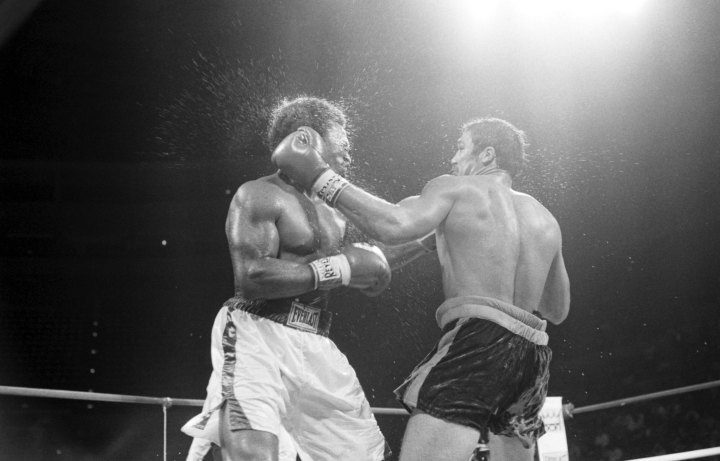
On 23 September 1983, South African heavyweight boxer Gerrie Coetzee took on world champ Michael Dokes, and won. Celebrated author Jacob Dlamini recalled the fight in his 2009 book ‘Native Nostalgia’. On the night, millions across the world tuned in to the fight, but in South Africa Radio Zulu brought the bout into people’s homes in townships.
Coetzee died at his home in Cape Town on 12 January at the age of 68.
Dlamini writes that while television was introduced to South Africa in 1976, his family relied on the radio or the “wireless”.
Here is Dlamini’s recollection.
“We could, thanks to the wireless, let our imaginations wander. We could see far and wide. We could also be present in places thousands of miles away from Katlehong.
One such place was Akron, the American home town of one Michael Dokes in the Midwestern state of Ohio. The date was 23 September 1983 and Dokes, boxing world heavyweight champion at the time, was defending a title he had won in December 1982.
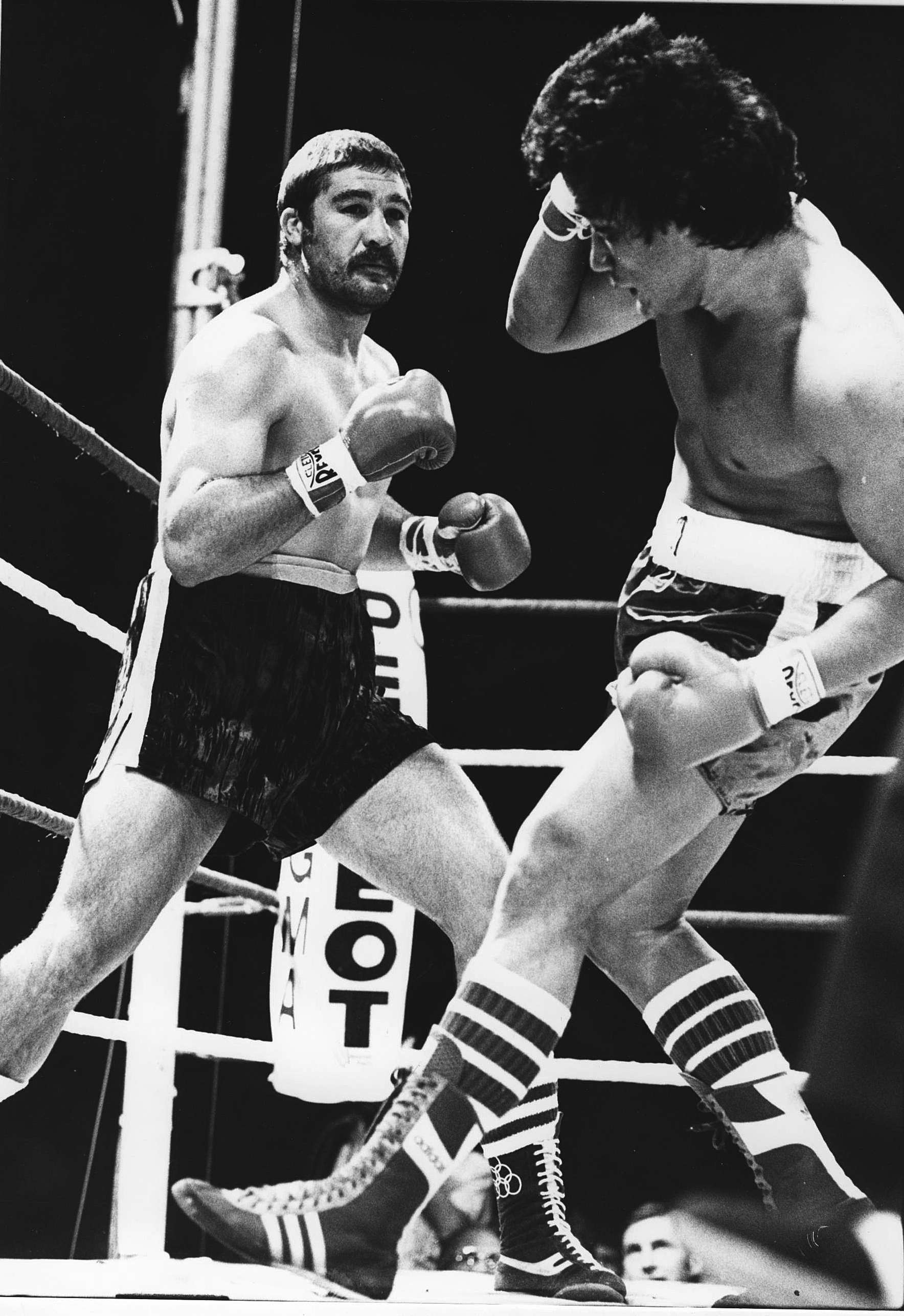
Gerrie Coetzee during a bout in Johannesburg. (Photo: Wessel Oosthuizen / Gallo Images)
Dokes’s challenger was Gerhardus Christiaan Coetzee, a South African fighter with little in the way of stamina but a powerful right hand. Dokes was a black American; Coetzee a white African.
Coetzee had already lost to Mike Weaver and John Tate, two big-hitting American boxers, and was not expected to trouble Dokes.
A homeboy
But he was South African and a homeboy, coming as he did from the East Rand city of Boksburg, about 10km from Katlehong. In fact, his nickname was the Boksburg Bomber.
Coetzee was an Afrikaner and spoke with a thick Afrikaans accent, but he had endeared himself to black South Africans by declaring publicly that he was opposed to apartheid and was no bigot.
My family supported Coetzee and my mother would let me stay up to follow his fights on the radio each time the man went into the ring. He was one of ours and we cheered him on without reservation.
We followed every twist and turn of his fight against Dokes, every blow on the radio. As I recall, the fight began promisingly for Dokes. He was quicker than Coetzee and had a bigger arsenal than Coetzee.
But he did not look like a man who had trained seriously for this fight. So it did not come as a surprise when, in the fifth round, Coetzee caught Dokes in the jaw with a right hand.
The punch sent the champion to the canvas on one knee. But it was not over yet. Coetzee, who had done well not to show his legendary lack of stamina, caught Dokes again in the 10th round. This time Dokes did not get up.
We are the Champions
The fight was over and the world had a new boxing heavyweight champion. My family was ecstatic. So were the other families in our street. We had all been cheering Coetzee and had all followed the fight on the radio.
Coetzee’s victory made him the first African ever to be crowned world heavyweight champion. But the significance of the fight, dubbed the Upset of the Year for 1983 by KO Magazine, extended beyond Coetzee’s African origins.
Read in Daily Maverick: “Former world heavyweight champion Gerrie Coetzee dies aged 67”
He also happened to be the first white boxer in 23 years to be crowned world heavyweight champion. The world had not had a white world heavyweight champ since 1960 when Ingemar Johansson defeated Floyd Patterson.
Given that the sport of boxing is always nursing ‘white hopes’, I have no doubt there were white supremacists out there who found cynical vindication in Coetzee’s triumph.
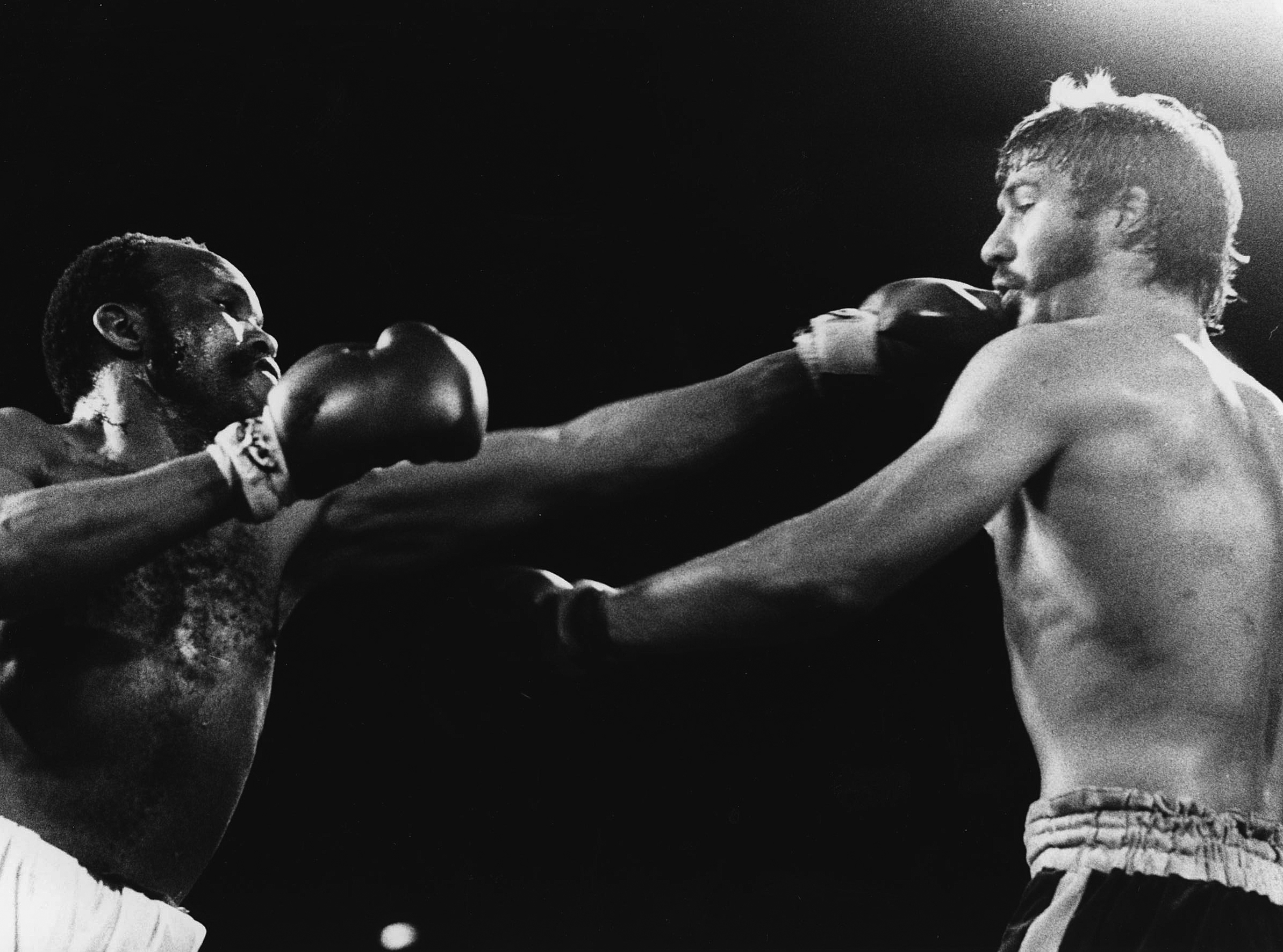
Gerrie Coetzee during a fight in Johannesburg. (Photo: Wessel Oosthuizen / Gallo Images)
The apartheid South African government must also have tried to milk Coetzee’s victory for all it was worth. This was in the early 1980s and the anti-apartheid movement was starting to gain traction and the cultural and sports boycott of South Africa was increasingly becoming noticeable. We did not care.
Visit Daily Maverick’s home page for more news, analysis and investigations
A better fighter had won on the night. What’s more, the winner was one of us, a South African and a homeboy. That is what mattered. It also helped that Coetzee had used his position as a public figure to speak out against apartheid. Was his opposition to apartheid genuine?
After all, his promoter was one Don King, the father of cynicism. It did not matter.
What mattered was that Coetzee came from our neck of the woods and was only too happy to advertise the fact.
My neighbourhood friends and I followed his fight over the radio and because we could only see with our minds, we embellished every possible detail in our re-enactments the following day.
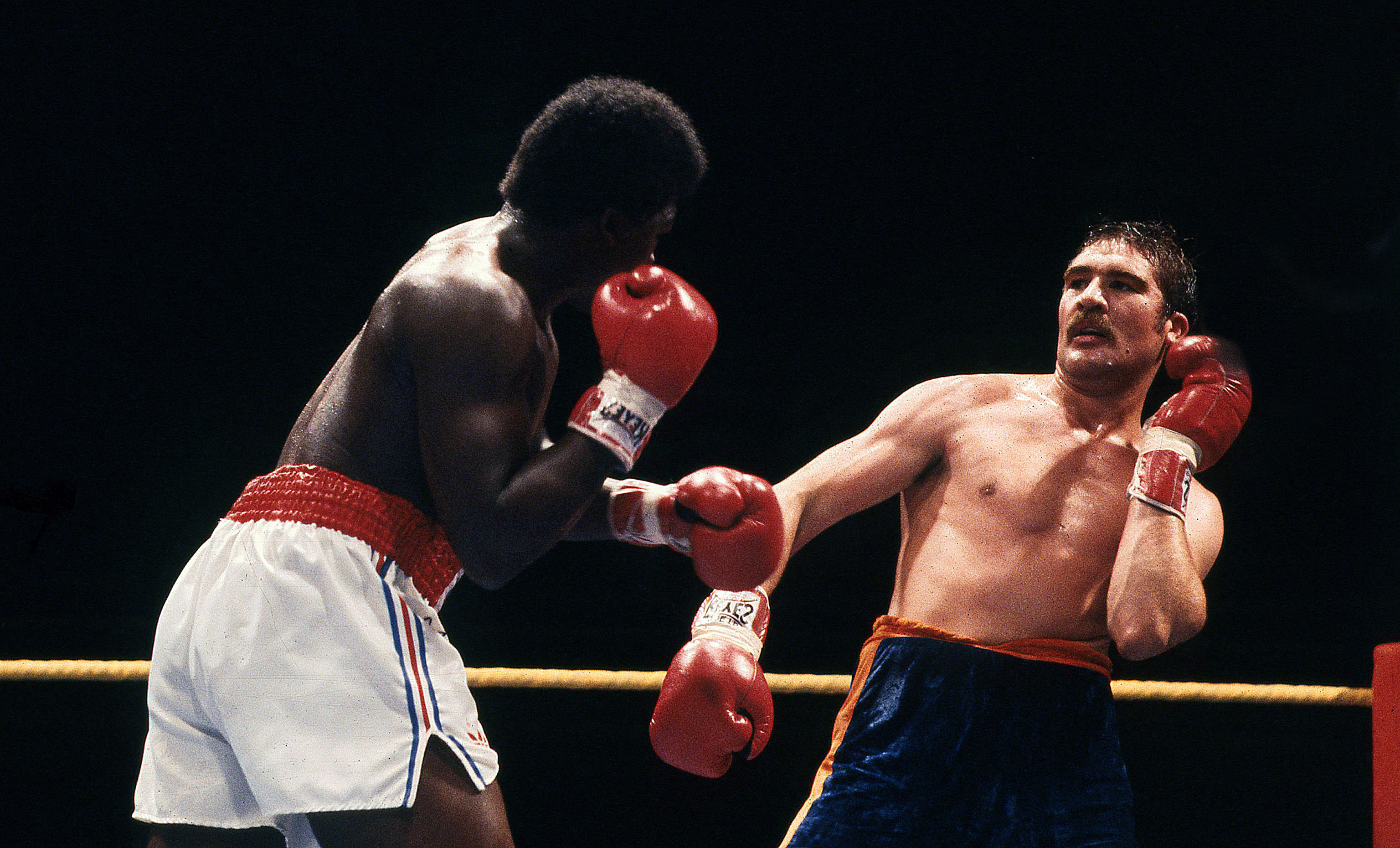
Gerrie Coetzee and John Tate in action. (Photo: Wessel Oosthuizen / Gallo Images)
Some took the role of Dokes; others assumed the triumphant poses of the Boksburg Bomber, ducking and weaving as they imagined themselves in that ring thousands of miles away in Akron, Ohio.
News that there were black families that supported Coetzee enthusiastically, and that we would stay up all night or get up early in the morning to follow the broadcasts of his fights on radio, may come as a surprise to those who would like to think that the world of apartheid was one of moral clarity.
It might even come as a shock for these people to discover that apartheid South Africa, even at its worst, was never a world of black and white.
Shades of Grey
There were shades of grey, zones of ambiguity that individuals traversed daily as they went about their lives. Naturally, these shades of grey and zones of ambiguity were not experienced the same way.
In the case of Coetzee, it may have helped that he was openly opposed to apartheid. But Coetzee was no freedom fighter, no knight in shining armour.
He was simply a boxer of moderate talent who got far. None of that mattered, however. What mattered was that he was one of us and we claimed him as such.
Radio Zulu
It is also possible that Coetzee’s acceptance in our street was helped by the way he was presented by Radio Zulu.
For all of this, our deep love for him and the recording of his exploits, was done in Zulu. In fact, Radio Zulu was famous for its sports broadcasts. People who did not speak Zulu as their first language would tune in to the station to follow its broadcasts.
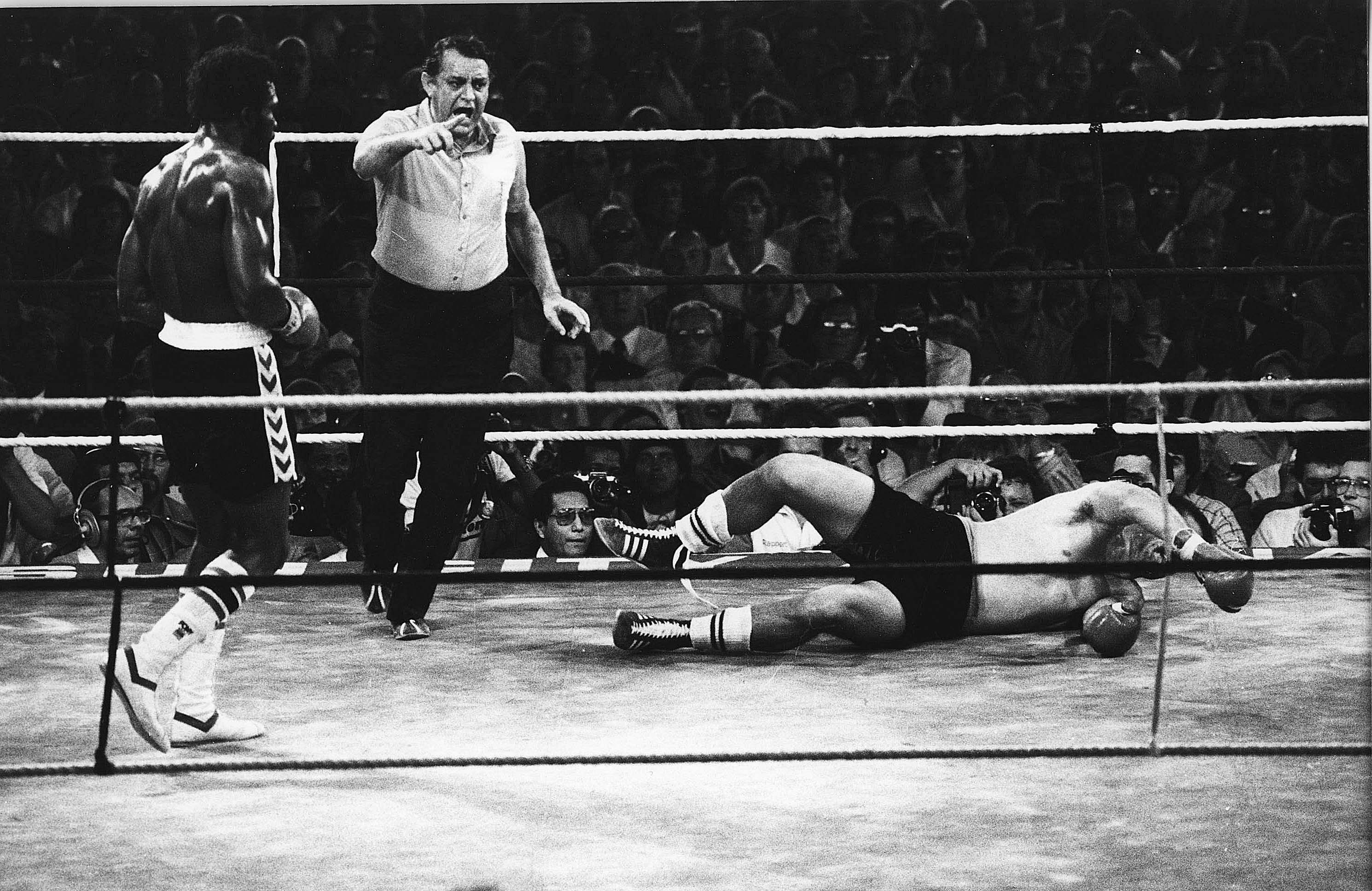
Greg Page knocks out Gerrie Coetzee at Sun City. (Photo: Wessel Oosthuizen / Gallo Images)
This is worth recalling because it went against apartheid communications policy, which sought to connect so-called Bantu radio stations to the doctrine of separate development.
In terms of apartheid thinking, these stations sought to promote ethnic consciousness and pride in one’s languages. But things did not go according to plan for apartheid’s planners.” DM
Native Nostalgia is published by Jacana and is available in print and in electronic form.



















 Become an Insider
Become an Insider
This article is categorized as a memorial to Gerrie Coetzee but 90% of it focuses on apartheid and race in SA and almost nothing on Gerrie Coetzee except that he opposed apartheid. Cheap trick to attract clicks..
A wonderful piece reflecting on some of the contradictory experiences of those dark days.